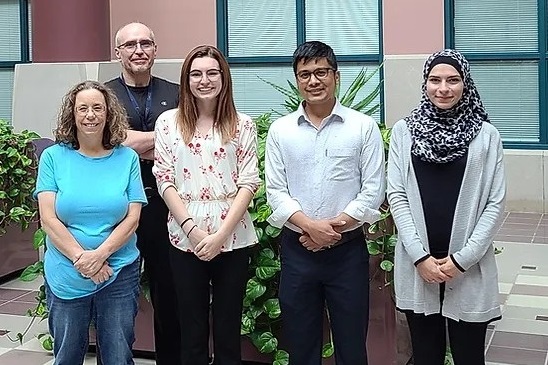Results from a new study focused on fighting the cancer often called “the silent killer” show that targeting a specific protein in the body may slow or prevent the progression of the invasive disease.

Wayne State University School of Medicine Professor of Oncology Kay-Uwe Wagner, Ph.D., is the principal investigator of “The Janus kinase 1 is critical for pancreatic cancer initiation and progression,” published in the open access journal Cell Reports.
“Pancreatic ductal adenocarcinoma is a particularly serious type of cancer. It's often referred to as ‘the silent killer’ because it can progress rapidly without noticeable symptoms in its early stages,” Dr. Wagner said.
Pancreatic ductal adenocarcinoma is the most common form of pancreatic cancer, making up more than 80% of cases, according to the National Cancer Institute and the Cancer Genome Atlas Program. The disease begins in the cells of the pancreas that produce and transport juices containing digestive enzymes into the small intestine.
"While the prognosis for patients with resectable pancreatic cancer is more favorable, the vast majority of cases are diagnosed in patients after the cancer cell had spread to other organs, which leads to very dismal outcomes using standard chemotherapies," Dr. Wagner added.

“Our research focused on how IL-6-class inflammatory cytokines can contribute to the development of this disease,” Dr. Wagner said. “We found that a protein called Janus kinase 1 is required to relay the signals of inflammatory cytokines within pancreatic cells and how JAK1 activates STAT3 and C/EBPδ, two other proteins involved in tumor development.”
Blocking the cancer-promoting effects of inflammatory cytokines through inhibition of the Janus kinase 1 prevents the formation of high-grade preneoplastic lesions and pancreatic tumors.
The main findings suggest that targeting JAK1 might be a promising approach for preventing or treating early-stage pancreatic cancer on its path to becoming one of the deadliest forms of cancer. Targeting JAK1 may slow or prevent the progression of operable disease in patients with pancreatic tumors who are at risk of recurrence.
“Understanding its role in the disease can help other researchers develop new and more effective treatment options,” Dr. Wagner added.
Dr. Wagner is also the leader of the Tumor Biology and Microenvironment Program and the Lloyd and Marilyn Smith Chair for Breast Cancer Research at the Barbara Ann Karmanos Cancer Institute. His collaborators on the Cell Reports study include WSU Professor and Chair of Pathology Rafic Beydoun, M.D., Dr. Wagner's lab members, and senior investigators at the National Cancer Institute, Thomas Jefferson University and the German Cancer Research Center.